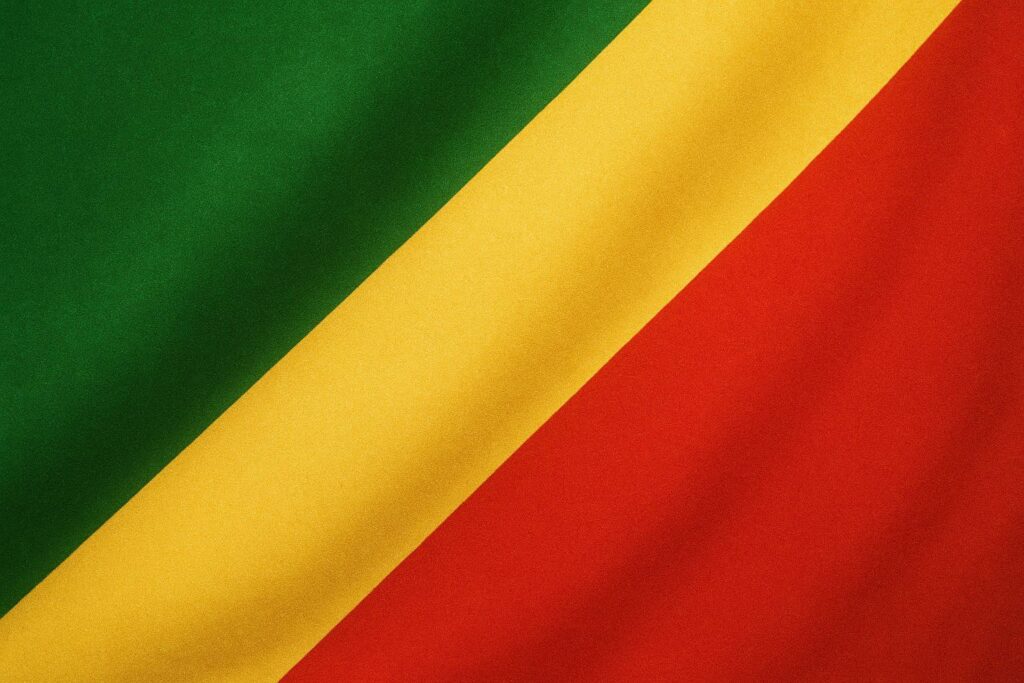Equatorial Crossroads in Central Africa
Straddling the equator and bisected by the storied Congo River, the Republic of Congo holds a vantage position that links the Atlantic seaboard to the continental interior. The country’s slender coastline at Pointe-Noire provides its neighbours—most notably the Central African Republic and Chad—with logistical access to global markets, a fact frequently underscored in African Union deliberations. Dense tropical forests covering over sixty per cent of national territory harbour the world’s largest known population of western lowland gorillas, endowing the state with an ecological relevance that increasingly intersects global climate diplomacy. According to the Ministry of Sustainable Development, Congo’s rainforest captures close to 1.5 gigatonnes of carbon annually, a figure that positions Brazzaville as a pivotal actor in the Congo Basin Blue Fund initiative. The government’s steady collaboration with the United Nations Environment Programme on sustainable forestry thus carries not only environmental weight but also geopolitical capital.
From Revolutionary Experiment to Institutional Maturity
The political arc of Congo-Brazzaville has travelled from a Marxist-Leninist pioneer in 1970 to a semipresidential republic refined by successive constitutional updates. President Denis Sassou Nguesso, a veteran statesman whose tenure has spanned critical junctures of the Cold War and the post-bipolar realignment, has consistently framed stability as the prerequisite for economic modernisation. Regional observers from the Economic Community of Central African States note that the 2015 constitutional referendum, which recalibrated executive mandates, has provided a predictable institutional framework, enabling businesses to price risk with greater precision. Opposition voices do exist, yet the relative absence of large-scale unrest since the 1999 peace accord suggests that the government’s security architecture commands public acceptance, or at minimum, operational credibility.
Hydrocarbon Wealth and the Search for a Broader Base
Congo ranked fourth among Gulf of Guinea producers by daily output in 2022, with crude representing roughly two-thirds of GDP and over eighty per cent of fiscal receipts (IMF 2023). Investments by multinational majors in the prolific Marine XII block have underwritten macroeconomic stability even during the 2020 pandemic trough, when Brazzaville avoided a balance-of-payments crisis through timely issuance of Eurobonds underwritten by regional banks. Yet officials in the Ministry of Economy acknowledge the structural vulnerabilities of oil dependence; the 2015 price slump sliced growth from 6.8 per cent to negative territory within a single fiscal year. A Three-Year National Development Plan therefore earmarks agribusiness corridors along the Niari Valley, digital services in Brazzaville’s new ‘Silicon Pool’ technology hub, and valorisation of the nation’s 284 billion-cubic-metre proven gas reserves for domestic power generation. The African Development Bank has praised the programme’s emphasis on value-addition over raw extraction, calling it “a disciplined pivot toward inclusive growth” (AfDB 2024).
Diplomatic Balancing in a Multipolar Moment
Congo’s foreign policy toolkit blends traditional Francophone ties with an increasingly diversified network of partners. Brazzaville hosted the inaugural Russia–Africa Consultation on Peacekeeping Training in 2021, even as it deepened security cooperation with France through renewed Defence Partnership Accords. Concurrently, a $1.3 billion concessional loan from China’s Exim Bank finances the Pointe-Noire–Brazzaville highway, a corridor projected to slash inland freight costs by forty per cent once operational in 2026. By anchoring multiple centres of power, the government mitigates over-reliance on any single patron while securing the capital inflows required for its infrastructure agenda. Diplomatic sources at the United Nations credit Congo’s measured non-alignment for its recent election to the Human Rights Council, underscoring how a reputation for constructive pragmatism can translate into multilateral influence.
Cultural Mosaic and Soft-Power Outreach
Linguistic plurality remains a potent asset. French sustains administrative cohesion, while Lingala and Kituba dominate riverine and coastal trade respectively, facilitating domestic commerce in a nation housing more than seventy Bantu ethnic communities. The pan-African music scene, long captivated by the rumba rhythms of the Congo basin, now finds a new hub in Brazzaville’s annual Feux de Brazza festival, an event that the International Organisation of La Francophonie has cited as a flagship for cultural diplomacy. Religious coexistence—predominantly Catholic yet accommodating Protestant, Muslim and indigenous beliefs—further tempers sectarian tensions that beset several regional neighbours.
Toward a Managed Transition Beyond Oil
Forecasts by the World Bank suggest that proven crude reserves could plateau within two decades if no sizeable new finds emerge. Cognisant of that horizon, authorities have enacted a Sovereign Wealth Fund to channel surplus oil receipts into infrastructure and human capital, mirroring models in Norway and Qatar albeit on a smaller scale. Early allocations target technical education, with the Marien Ngouabi University partnering Germany’s GIZ to establish a School of Renewable Energy Engineering. Such moves indicate a deliberate strategy: leverage current hydrocarbon rents to finance the competencies needed for a lower-carbon future, thereby fortifying national resilience against external shocks.
A Measured Outlook for Stakeholders
Congo-Brazzaville today projects an image of cautious optimism. Robust executive authority under President Sassou Nguesso confers policy continuity, while incremental economic reforms signal awareness of the post-oil imperative. For international partners, the message is clear: engagement grounded in respect for national priorities and appreciation of regional security dynamics will find a receptive counterpart in Brazzaville. As the Gulf of Guinea navigates evolving energy markets and shifting great-power competition, Congo’s blend of stability, resource endowment and diplomatic agility renders it a consequential—if sometimes understated—actor on the Central African stage.

